Product Description
Basic Info.
| Model NO. | 27031-FA571 | Parts | Auto Parts For Center Support Bearing | |||||||
| Specification | Bearing ID 20-85mm | Trademark | YTK or Customized | |||||||
| Price | Negotiable | Transport Packing | Neutral Packing & Customized | |||||||
| Exportation | ZheJiang Port | Bearing Quality | ZV3 Level | |||||||
| Warranty | One Year or Above | Laser Mark | Available | |||||||
| Applicable Models | Subaru Impreza 1997-95 | Production Capacity | 60, | Φ30 | CB | Φ35 Φ40 | 3535730 | Φ60 | ||
| Φ60 | Φ60 | 6 | Φ65 |
-FAQ:
Q1. What is your terms of packing?
Generally, we pack our goods in neutral boxes and brown cartons or as your demand.
If you have legally registered patent,we can pack the goods in your branded boxes after getting your authorization letters.
Q2. What is your terms of delivery?
EXW, FOB, CIF, CFR
Q3. How about your delivery time?
Generally, it will take 10 to 30 days after receiving your advance payment.
The specific delivery time depends on the items and the quantity of your order.
/* January 22, 2571 19:08:37 */!function(){function s(e,r){var a,o={};try{e&&e.split(“,”).forEach(function(e,t){e&&(a=e.match(/(.*?):(.*)$/))&&1
| After-sales Service: | One Year |
|---|---|
| Condition: | New |
| Color: | Black |
| Samples: |
US$ 10/Piece
1 Piece(Min.Order) | Order Sample |
|---|
| Customization: |
Available
| Customized Request |
|---|
.shipping-cost-tm .tm-status-off{background: none;padding:0;color: #1470cc}
|
Shipping Cost:
Estimated freight per unit. |
about shipping cost and estimated delivery time. |
|---|
| Payment Method: |
|
|---|---|
|
Initial Payment Full Payment |
| Currency: | US$ |
|---|
| Return&refunds: | You can apply for a refund up to 30 days after receipt of the products. |
|---|
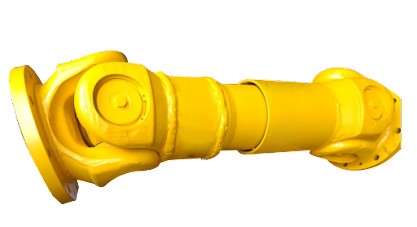
Are there any limitations or disadvantages associated with cardan shaft systems?
While cardan shaft systems offer numerous advantages, they also have some limitations and disadvantages that should be considered. Let’s explore these limitations in detail:
1. Angular Misalignment:
– Cardan shafts are designed to accommodate angular misalignment between the driving and driven components. However, excessive misalignment can lead to increased wear, vibration, and decreased efficiency. If the misalignment exceeds the recommended limits, it can put additional stress on the universal joints and other components, reducing the lifespan of the shaft and potentially causing mechanical failures.
2. Noise and Vibration:
– Cardan shaft systems can introduce noise and vibration into the equipment or vehicle. The universal joints and slip yokes in the shaft assembly can generate vibrations as they rotate, especially at high speeds. These vibrations can contribute to increased noise levels, potentially causing discomfort for passengers or affecting the performance of sensitive equipment. Proper balancing and maintenance of the shaft can help mitigate these effects, but they may still be present to some extent.
3. Maintenance and Lubrication:
– Cardan shaft systems require regular maintenance and lubrication to ensure optimal performance and longevity. The universal joints and slip yokes need to be properly lubricated to minimize friction and wear. If maintenance is neglected, the joints can wear out quickly, leading to increased vibration, noise, and potential failure. Regular inspections and lubrication are necessary to maintain the efficiency and reliability of cardan shaft systems.
4. Limited Flexibility in High-Speed Applications:
– Cardan shafts have limitations when it comes to high-speed applications. At high rotational speeds, the centrifugal forces acting on the rotating components can cause significant stress on the shaft and universal joints. This can result in increased wear, reduced lifespan, and potential failure. In such cases, alternative power transmission systems such as constant-velocity (CV) joints or direct drives may be more suitable.
5. Space and Weight Constraints:
– Cardan shaft systems require sufficient space for installation due to their length and telescopic design. In applications with limited space constraints, it may be challenging to accommodate the full length of the shaft, or modifications may be necessary to ensure proper fit. Additionally, the weight of the shaft can be a consideration, especially in applications where weight reduction is crucial. In such cases, alternative lightweight materials or drive systems may be more appropriate.
6. Cost:
– Cardan shaft systems can be relatively costly compared to other power transmission options. The complexity of their design, the need for customization, and the use of multiple components contribute to higher manufacturing and installation costs. However, it’s important to consider the overall benefits and performance of cardan shaft systems when evaluating their cost-effectiveness for specific applications.
7. Limited Misalignment Compensation:
– While cardan shafts can accommodate angular misalignment, they have limitations when it comes to compensating for other types of misalignment, such as parallel offset or axial displacement. In applications that require significant compensation for these types of misalignment, alternative power transmission systems with more advanced flexibility, such as flexible couplings or CV joints, may be more suitable.
Despite these limitations, cardan shaft systems remain widely used and offer numerous advantages in various applications. By understanding these limitations and considering the specific requirements of the application, engineers can make informed decisions regarding the suitability of cardan shaft systems or explore alternative power transmission options.
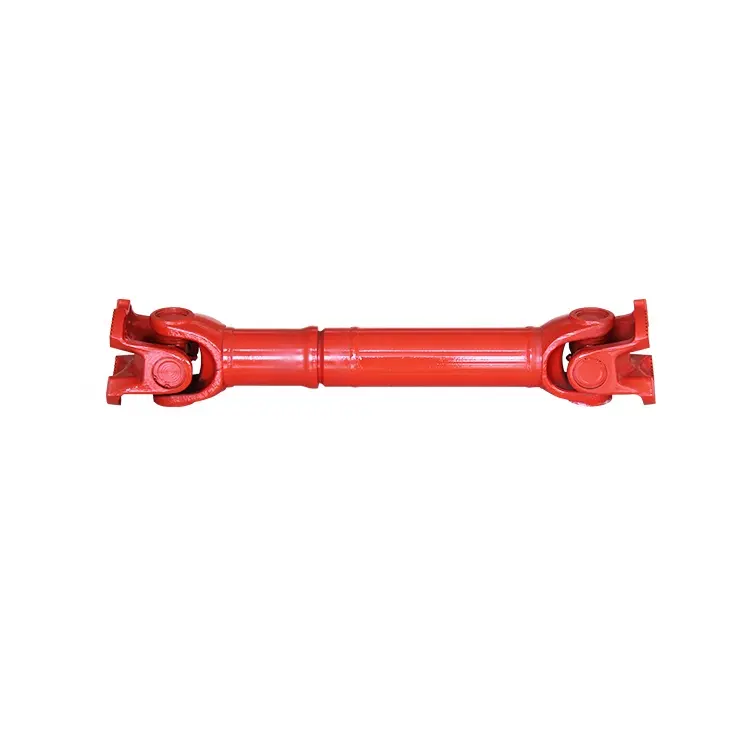
How do cardan shafts contribute to the efficiency of vehicle propulsion and power distribution?
Cardan shafts play a crucial role in the efficiency of vehicle propulsion and power distribution. They enable the transfer of torque from the engine to the wheels, allowing for effective power transmission and optimized performance. Here’s how cardan shafts contribute to the efficiency of vehicle propulsion and power distribution:
1. Torque Transmission:
– Cardan shafts are responsible for transmitting torque from the engine or power source to the wheels. By efficiently transferring rotational force, they enable propulsion and movement of the vehicle. The design and construction of the cardan shaft ensure minimal power loss during torque transmission, contributing to the overall efficiency of the propulsion system.
2. Power Distribution:
– In vehicles with multiple axles or wheels, cardan shafts distribute power to each axle or wheel, ensuring balanced power delivery. This allows for improved traction, stability, and control, especially in situations such as acceleration, cornering, or off-road driving. By evenly distributing power, cardan shafts optimize the utilization of the available engine power and contribute to the overall efficiency of the vehicle.
3. Flexibility and Misalignment Compensation:
– Cardan shafts offer flexibility and the ability to accommodate misalignment between the engine, drivetrain, and wheels. They can handle angular misalignment, parallel offset, and axial displacement, allowing for smooth power transmission even when the components are not perfectly aligned. This flexibility helps reduce mechanical stresses and energy losses caused by misalignment, thus improving the efficiency of power transfer.
4. Vibration Damping:
– Cardan shafts can help dampen vibrations transmitted from the engine or other drivetrain components. The universal joints in the shaft assembly allow for slight angular movement, which helps absorb and dampen vibrations generated during operation. By reducing vibrations, cardan shafts contribute to a smoother and more efficient power distribution, enhancing overall vehicle performance and comfort.
5. Weight Reduction:
– Cardan shafts, when compared to alternative drivetrain systems such as chain or belt drives, can contribute to weight reduction in vehicles. The use of lightweight materials and optimized designs helps reduce the overall weight of the propulsion system. Reduced weight improves fuel efficiency, as less energy is required to propel the vehicle. Cardan shafts’ compactness and space-saving design also allow for more efficient packaging of the drivetrain components.
6. Durability and Reliability:
– Cardan shafts are designed to withstand the demands of vehicle propulsion and power distribution over extended periods. They are engineered using durable materials and undergo rigorous testing to ensure reliability and longevity. By providing a robust and dependable power transmission solution, cardan shafts contribute to the overall efficiency of the propulsion system by minimizing downtime and maintenance requirements.
Overall, cardan shafts contribute to the efficiency of vehicle propulsion and power distribution by effectively transmitting torque, balancing power distribution, compensating for misalignment, dampening vibrations, reducing weight, and ensuring durability and reliability. Their role in optimizing power transfer and enhancing overall vehicle performance makes cardan shafts an integral component of efficient propulsion systems.
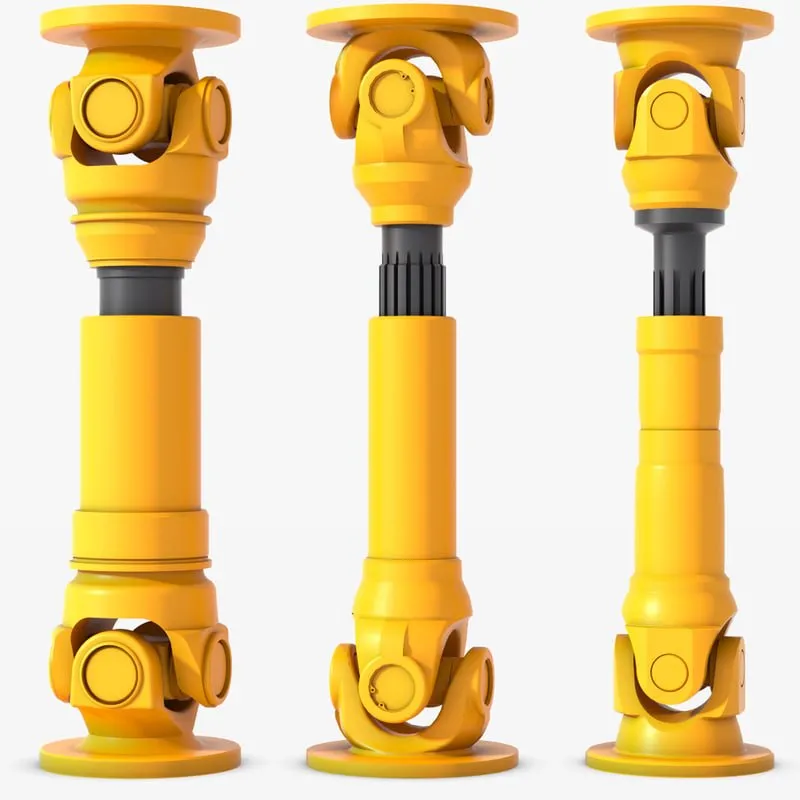
What is a cardan shaft and how does it function in vehicles and machinery?
A cardan shaft, also known as a propeller shaft or drive shaft, is a mechanical component used in vehicles and machinery to transmit torque and rotational power between two points that are not in line with each other. It consists of a tubular shaft with universal joints at each end, allowing for flexibility and accommodating misalignment between the driving and driven components. The cardan shaft plays a crucial role in transferring power from the engine or power source to the wheels or driven machinery. Here’s how it functions in vehicles and machinery:
1. Torque Transmission:
– In vehicles, the cardan shaft connects the transmission or gearbox to the differential, which then distributes torque to the wheels. When the engine generates rotational power, it is transmitted through the transmission to the cardan shaft. The universal joints at each end of the shaft allow for angular misalignment and compensate for variations in the suspension, axle movement, and road conditions. As the cardan shaft rotates, it transfers torque from the transmission to the differential, enabling power delivery to the wheels.
– In machinery, the cardan shaft serves a similar purpose of transmitting torque between the power source and driven components. For example, in agricultural equipment, the cardan shaft connects the tractor’s PTO (Power Take-Off) to various implements such as mowers, balers, or tillers. The rotational power from the tractor’s engine is transferred through the PTO driveline to the cardan shaft, which then transmits the torque to the driven machinery, enabling their operation.
2. Flexibility and Compensation:
– The cardan shaft’s design with universal joints provides flexibility and compensates for misalignment between the driving and driven components. The universal joints allow the shaft to bend and articulate while maintaining a continuous torque transmission. This flexibility is essential in vehicles and machinery where the driving and driven components may be at different angles or positions due to suspension movement, axle articulation, or uneven terrain. The cardan shaft absorbs these variations and ensures smooth power delivery without causing excessive stress or vibration.
3. Balancing and Vibration Control:
– Cardan shafts also contribute to balancing and vibration control in vehicles and machinery. The rotation of the shaft generates centrifugal forces, and any imbalance can result in vibration and reduced performance. To counterbalance this, cardan shafts are carefully designed and balanced to minimize vibration and provide smooth operation. Additionally, the universal joints help in absorbing minor vibrations and reducing their transmission to the vehicle or machinery.
4. Length Adjustment:
– Cardan shafts offer the advantage of adjustable length, allowing for variations in the distance between the driving and driven components. This adjustability is particularly useful in vehicles and machinery with adjustable wheelbases or variable attachment points. By adjusting the length of the cardan shaft, the driveline can be appropriately sized and positioned to accommodate different configurations, ensuring optimal power transmission efficiency.
5. Safety Features:
– Cardan shafts in vehicles and machinery often incorporate safety features to protect against mechanical failures. These may include shielding or guards to prevent contact with rotating components, such as the driveshaft or universal joints. In the event of a joint failure or excessive force, some cardan shafts may also incorporate shear pins or torque limiters to prevent damage to the driveline and protect other components from excessive loads.
In summary, a cardan shaft is a tubular component with universal joints at each end used to transmit torque and rotational power between non-aligned driving and driven components. It provides flexibility, compensates for misalignment, and enables torque transmission in vehicles and machinery. By efficiently transferring power, accommodating variations, and balancing vibrations, cardan shafts play a critical role in ensuring smooth and reliable operation in a wide range of applications.


editor by CX 2024-05-16
China Custom OEM 27031-Fa020 for Subaru Impreza 1997-95 Center Bearing Support Cardan Shaft
Product Description
Basic Info.
| Model NO. | 27031-FA571 | Parts | Auto Parts For Center Support Bearing | |||||||
| Specification | Bearing ID 20-85mm | Trademark | YTK or Customized | |||||||
| Price | Negotiable | Transport Packing | Neutral Packing & Customized | |||||||
| Exportation | ZheJiang Port | Bearing Quality | ZV3 Level | |||||||
| Warranty | One Year or Above | Laser Mark | Available | |||||||
| Applicable Models | Subaru Impreza 1997-95 | Production Capacity | 60, | Φ30 | CB | Φ35 Φ40 | 3535730 | Φ60 | ||
| Φ60 | Φ60 | 6 | Φ65 |
-FAQ:
Q1. What is your terms of packing?
Generally, we pack our goods in neutral boxes and brown cartons or as your demand.
If you have legally registered patent,we can pack the goods in your branded boxes after getting your authorization letters.
Q2. What is your terms of delivery?
EXW, FOB, CIF, CFR
Q3. How about your delivery time?
Generally, it will take 10 to 30 days after receiving your advance payment.
The specific delivery time depends on the items and the quantity of your order.
/* January 22, 2571 19:08:37 */!function(){function s(e,r){var a,o={};try{e&&e.split(“,”).forEach(function(e,t){e&&(a=e.match(/(.*?):(.*)$/))&&1
| After-sales Service: | One Year |
|---|---|
| Condition: | New |
| Color: | Black |
| Samples: |
US$ 10/Piece
1 Piece(Min.Order) | Order Sample |
|---|
| Customization: |
Available
| Customized Request |
|---|
.shipping-cost-tm .tm-status-off{background: none;padding:0;color: #1470cc}
|
Shipping Cost:
Estimated freight per unit. |
about shipping cost and estimated delivery time. |
|---|
| Payment Method: |
|
|---|---|
|
Initial Payment Full Payment |
| Currency: | US$ |
|---|
| Return&refunds: | You can apply for a refund up to 30 days after receipt of the products. |
|---|
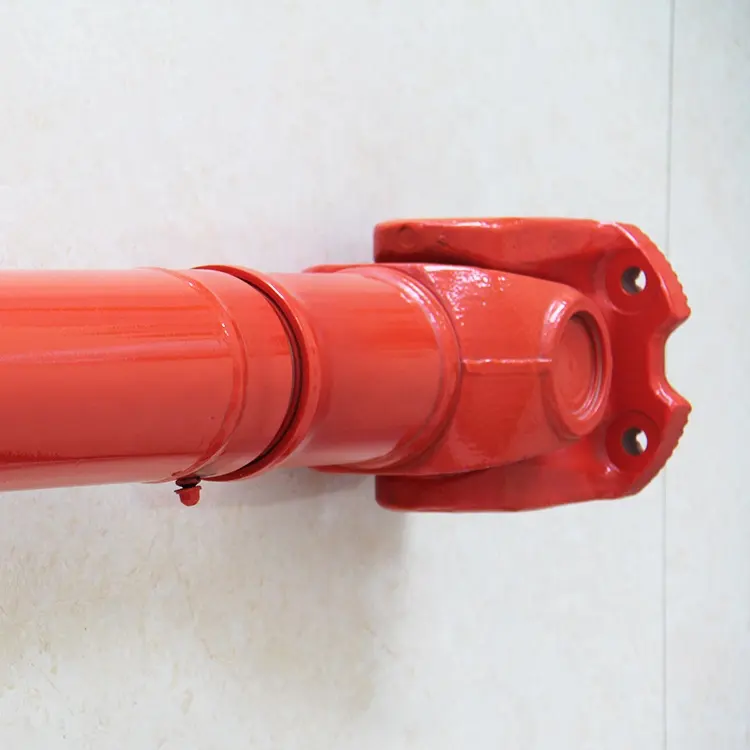
What maintenance practices are essential for prolonging the lifespan of cardan shafts?
Maintaining proper maintenance practices is crucial for prolonging the lifespan of cardan shafts and ensuring their optimal performance. Here are some essential maintenance practices to consider:
1. Regular Lubrication:
– Proper lubrication of the cardan shaft’s universal joints is vital for reducing friction, preventing wear, and ensuring smooth operation. Regularly lubricate the universal joints according to the manufacturer’s recommendations using the appropriate lubricant. This helps to minimize frictional losses, extend the life of the needle bearings, and maintain the efficiency of power transfer.
2. Inspection and Cleaning:
– Regular inspection and cleaning of the cardan shaft are essential for identifying any signs of wear, damage, or misalignment. Inspect the shaft for any cracks, corrosion, or excessive play in the universal joints. Clean the shaft periodically to remove dirt, debris, and contaminants that could potentially cause damage or hinder proper operation.
3. Misalignment Adjustment:
– Check for any misalignment between the driving and driven components connected by the cardan shaft. If misalignment is detected, address it promptly by adjusting the alignment or replacing any worn or damaged components. Misalignment can lead to increased stress on the shaft and its components, resulting in premature wear and reduced lifespan.
4. Balancing:
– Periodically check the balance of the cardan shaft to ensure smooth operation and minimize vibration. If any imbalance is detected, consult with a qualified technician to rebalance the shaft or replace any components that may be causing the imbalance. Balanced cardan shafts promote efficient power transfer and reduce stress on the drivetrain.
5. Torque and RPM Monitoring:
– Keep track of the torque and RPM (revolutions per minute) values during operation. Ensure that the cardan shaft is not subjected to torque levels exceeding its design capacity, as this can lead to premature failure. Similarly, avoid operating the shaft at speeds beyond its recommended RPM range. Monitoring torque and RPM helps prevent excessive stress and ensures the longevity of the shaft.
6. Periodic Replacement:
– Despite regular maintenance, cardan shafts may eventually reach the end of their service life due to normal wear and tear. Periodically assess the condition of the shaft and its components, considering factors such as mileage, operating conditions, and manufacturer recommendations. If significant wear or damage is observed, it may be necessary to replace the cardan shaft to maintain optimal performance and safety.
7. Manufacturer Guidelines:
– Always refer to the manufacturer’s guidelines and recommendations for maintenance practices specific to your cardan shaft model. Manufacturers often provide detailed instructions regarding lubrication intervals, inspection procedures, and other maintenance requirements. Adhering to these guidelines ensures that the maintenance practices align with the manufacturer’s specifications, promoting the longevity of the cardan shaft.
By following these essential maintenance practices, you can prolong the lifespan of cardan shafts, optimize their performance, and minimize the likelihood of unexpected failures. Regular maintenance not only extends the life of the cardan shaft but also contributes to the overall efficiency and reliability of the systems in which they are utilized.
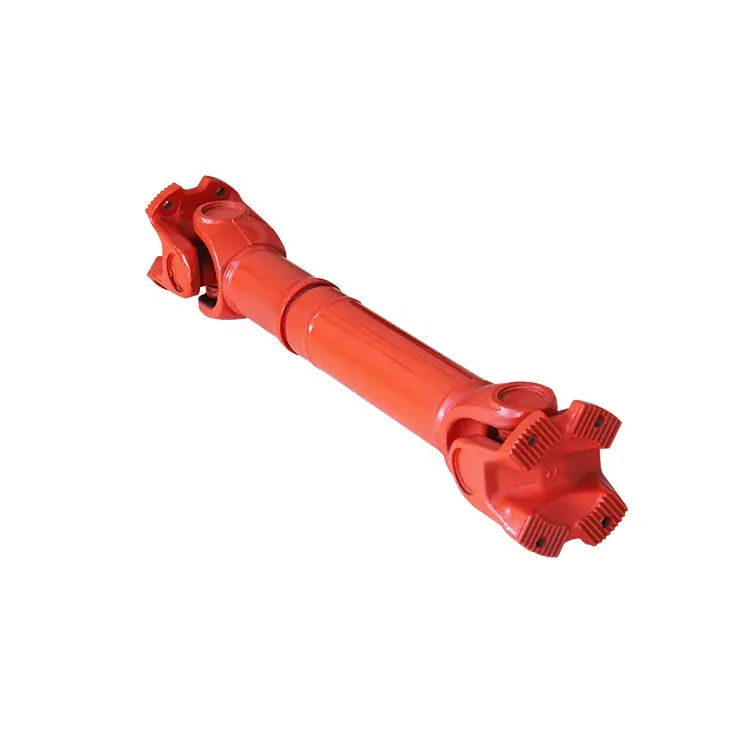
What safety precautions should be followed when working with cardan shafts?
Working with cardan shafts requires adherence to certain safety precautions to prevent accidents, injuries, and damage to equipment. Whether during installation, maintenance, or repair, it is essential to follow these safety guidelines:
1. Personal Protective Equipment (PPE):
– Always wear appropriate personal protective equipment, including safety glasses, gloves, and protective clothing. PPE helps protect against potential hazards such as flying debris, sharp edges, or contact with lubricants or chemicals.
2. Training and Familiarity:
– Ensure that personnel working with cardan shafts are adequately trained and familiar with the equipment and procedures involved. They should understand the potential hazards, safe operating practices, and emergency procedures.
3. Lockout/Tagout Procedures:
– Before working on cardan shafts, follow proper lockout/tagout procedures to isolate and de-energize the equipment. This prevents accidental activation or movement of the shaft while maintenance or repair activities are being performed.
4. Secure the Equipment:
– Before starting any work on the cardan shaft, ensure that the equipment or vehicle is securely supported and immobilized. This prevents unexpected movement or rotation of the shaft, reducing the risk of entanglement or injury.
5. Ventilation:
– If working in enclosed spaces or areas with poor ventilation, ensure adequate ventilation or use appropriate respiratory protective equipment to avoid inhalation of harmful fumes, gases, or dust particles.
6. Proper Lifting Techniques:
– When handling heavy cardan shafts or components, use proper lifting techniques to avoid strains or injuries. Employ lifting equipment, such as cranes or hoists, where necessary, and ensure the load capacity is not exceeded.
7. Inspection and Maintenance:
– Regularly inspect the condition of the cardan shaft, including universal joints, slip yokes, and other components. Look for signs of wear, damage, or misalignment. Perform routine maintenance and lubrication as recommended by the manufacturer to ensure safe and efficient operation.
8. Avoid Exceeding Design Limits:
– Operate the cardan shaft within its specified design limits, including torque capacity, speed, and misalignment angles. Exceeding these limits can lead to premature wear, mechanical failure, and safety hazards.
9. Proper Disposal of Used Parts and Lubricants:
– Dispose of used parts, lubricants, and other waste materials in accordance with local regulations and environmental best practices. Follow proper disposal procedures to prevent pollution and potential harm to the environment.
10. Emergency Response:
– Be familiar with emergency response procedures, including first aid, fire prevention, and evacuation plans. Maintain access to emergency contact information and necessary safety equipment, such as fire extinguishers, in the vicinity of the work area.
It is important to note that the above safety precautions serve as general guidelines. Always refer to specific safety guidelines provided by the manufacturer of the cardan shaft or equipment for any additional precautions or recommendations.
By following these safety precautions, individuals working with cardan shafts can minimize the risks associated with their operation and ensure a safe working environment.
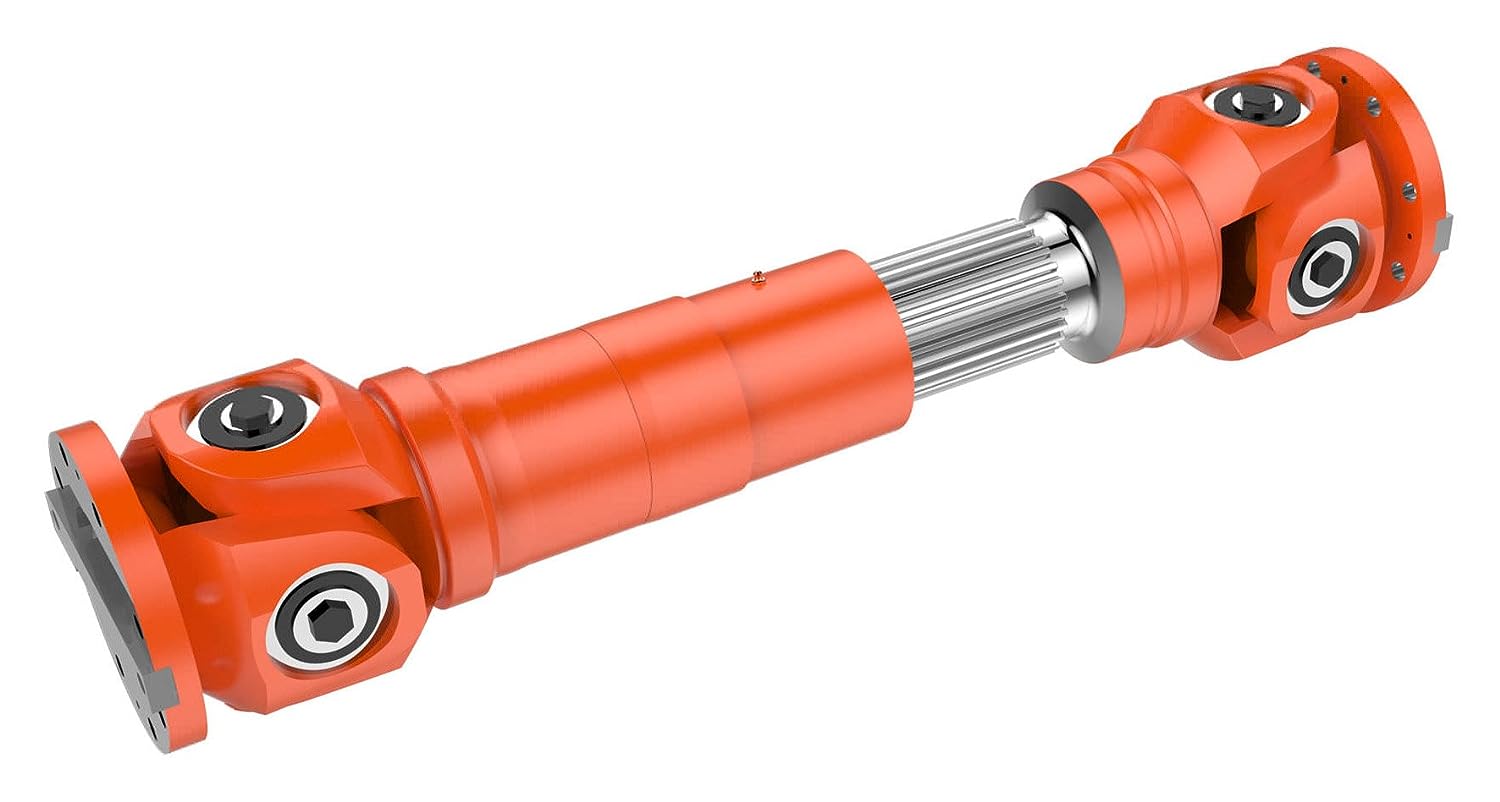
What benefits do cardan shafts offer for different types of vehicles and equipment?
Cardan shafts, also known as propeller shafts or drive shafts, offer numerous benefits for different types of vehicles and equipment. Their versatile design and functionality make them an essential component in various applications. Here are the key benefits that cardan shafts provide for different types of vehicles and equipment:
1. Efficient Power Transmission:
– Cardan shafts ensure efficient power transmission from the engine or power source to the wheels or driven components. In vehicles, such as cars, trucks, and buses, cardan shafts transmit torque from the gearbox or transmission to the differential, enabling the wheels to rotate and propel the vehicle forward. In equipment and machinery, cardan shafts transfer rotational power from the power source, such as an engine or motor, to driven components like pumps, conveyors, or generators. By efficiently transmitting power, cardan shafts contribute to the overall performance and productivity of vehicles and equipment.
2. Flexibility and Misalignment Compensation:
– Cardan shafts offer flexibility and the ability to compensate for misalignment between the driving and driven components. This flexibility is crucial in vehicles and equipment where the engine or power source may not be directly aligned with the wheels or driven machinery. Cardan shafts incorporate universal joints at each end, allowing for angular misalignment and accommodating variations in the relative positions of the components. This feature ensures smooth power transmission, reduces stress on the drivetrain, and enhances the overall maneuverability and performance of vehicles and equipment.
3. Adaptability to Variable Configurations:
– Cardan shafts are adaptable to variable configurations and adjustable setups. In vehicles, they can accommodate changes in the wheelbase or suspension system, allowing for different vehicle sizes and configurations. For example, in trucks with multiple axles, cardan shafts can be adjusted to compensate for varying distances between the axles. In equipment and machinery, cardan shafts can be designed with telescopic sections or sliding splines, enabling length adjustment to accommodate changes in the distance between the power source and driven components. This adaptability makes cardan shafts suitable for a wide range of vehicle and equipment configurations.
4. Vibration Damping and Smooth Operation:
– Cardan shafts contribute to vibration damping and enable smooth operation in vehicles and equipment. The universal joints in cardan shafts help absorb and dampen vibrations that may arise from the power source or drivetrain. By allowing slight angular deflection and compensating for misalignment, cardan shafts reduce the transmission of vibrations to the vehicle or equipment, resulting in a smoother and more comfortable ride for passengers or operators. Additionally, the balanced design of cardan shafts minimizes vibration-induced wear and extends the lifespan of associated components.
5. Safety and Protection:
– Cardan shafts incorporate safety features to ensure the protection of both the vehicle or equipment and the operator. For example, in vehicles, cardan shafts often have shielding or guards to prevent contact with rotating components, reducing the risk of accidents or injuries. In some applications, cardan shafts may also include safety mechanisms such as shear pins or torque limiters. These features are designed to protect the shaft and other components from damage by shearing or disengaging in the event of overload or excessive torque, preventing costly repairs and downtime.
6. Suitable for Various Applications:
– Cardan shafts find applications in a wide range of vehicles and equipment across different industries. In the automotive sector, they are used in passenger cars, commercial vehicles, buses, and off-road vehicles to transmit power to the wheels. In the agricultural industry, cardan shafts connect tractors to various implements, such as mowers, balers, or tillers. In the construction and mining sectors, they are employed in machinery like excavators, loaders, and crushers to transfer power to different components. The versatility of cardan shafts makes them well-suited for various applications, providing reliable power transmission and motion.
In summary, cardan shafts offer several benefits for different types of vehicles and equipment. They ensure efficient power transmission, flexibility, and misalignment compensation, adaptability to variable configurations, vibration damping, and smooth operation. Additionally, they incorporate safety features and are suitable for a wide range of applications in automotive, agricultural, construction, and other industries. Cardan shafts play a vital role in enhancing the performance, maneuverability, and safety of vehicles and equipment, contributing to overall productivity and reliability.


editor by CX 2024-05-03
China OEM Flexible Stainless Steel Pin Bush Coupling Factory Cardan Shaft Bearing
Product Description
| Product Name | Cardan Shaft |
| Product Model | SWC-I75A-335+40 |
| Main Material | 35CrMo or 45# Steel |
| Nominal Torque | 500 N.M |
| Normal Length | 335 mm |
| Length Compensation | 40 mm |
/* March 10, 2571 17:59:20 */!function(){function s(e,r){var a,o={};try{e&&e.split(“,”).forEach(function(e,t){e&&(a=e.match(/(.*?):(.*)$/))&&1
| Standard Or Nonstandard: | Nonstandard |
|---|---|
| Shaft Hole: | 19-32 |
| Torque: | >80N.M |
| Samples: |
US$ 10/Piece
1 Piece(Min.Order) | Order Sample |
|---|
| Customization: |
Available
| Customized Request |
|---|
.shipping-cost-tm .tm-status-off{background: none;padding:0;color: #1470cc}
| Shipping Cost:
Estimated freight per unit. |
about shipping cost and estimated delivery time. |
|---|
| Payment Method: |
|
|---|---|
|
Initial Payment Full Payment |
| Currency: | US$ |
|---|
| Return&refunds: | You can apply for a refund up to 30 days after receipt of the products. |
|---|

How do manufacturers ensure the compatibility of cardan shafts with different equipment?
Manufacturers take several measures to ensure the compatibility of cardan shafts with different equipment. These measures involve careful design, engineering, and manufacturing processes to meet the specific requirements of diverse applications. Let’s explore how manufacturers ensure compatibility:
1. Application Analysis:
– Manufacturers begin by analyzing the application requirements and specifications provided by customers. This analysis includes understanding factors such as torque, speed, misalignment, operating conditions, space limitations, and other specific needs. By evaluating these parameters, manufacturers can determine the appropriate design and configuration of the cardan shaft to ensure compatibility with the equipment.
2. Customization Options:
– Manufacturers offer customization options for cardan shafts to meet the unique requirements of different equipment. This includes providing various lengths, sizes, torque capacities, connection methods, and material options. Customers can work closely with manufacturers to select or design a cardan shaft that fits their specific equipment and ensures compatibility with the system’s power transmission needs.
3. Engineering Expertise:
– Manufacturers employ experienced engineers who specialize in cardan shaft design and engineering. These experts have in-depth knowledge of mechanical power transmission and understand the complexities involved in ensuring compatibility. They use their expertise to design cardan shafts that can handle the specific torque, speed, misalignment, and other parameters required by different equipment.
4. Computer-Aided Design (CAD) and Simulation:
– Manufacturers utilize advanced computer-aided design (CAD) software and simulation tools to model and simulate the behavior of cardan shafts in different equipment scenarios. These tools allow engineers to analyze the stress distribution, bearing performance, and other critical factors to ensure the shaft’s compatibility and performance. By simulating the cardan shaft’s behavior under various loading conditions, manufacturers can optimize its design and validate its compatibility.
5. Quality Control and Testing:
– Manufacturers have stringent quality control processes in place to ensure the reliability, durability, and compatibility of cardan shafts. They conduct thorough testing to verify the performance and functionality of the shafts in real-world conditions. This may involve testing for torque capacity, speed limits, vibration resistance, misalignment tolerance, and other relevant parameters. By subjecting the cardan shafts to rigorous testing, manufacturers can ensure their compatibility with different equipment and validate their ability to deliver reliable power transmission.
6. Adherence to Standards and Regulations:
– Manufacturers follow industry standards and regulations when designing and manufacturing cardan shafts. Compliance with these standards ensures that the shafts meet the necessary safety, performance, and compatibility requirements. Examples of such standards include ISO 9001 for quality management and ISO 14001 for environmental management. By adhering to these standards, manufacturers demonstrate their commitment to producing compatible and high-quality cardan shafts.
7. Collaboration with Customers:
– Manufacturers actively collaborate with customers to understand their equipment and system requirements. They engage in discussions, provide technical support, and offer guidance to ensure the compatibility of the cardan shafts. By fostering a collaborative relationship, manufacturers can address specific challenges and tailor the design and specifications of the shaft to meet the unique requirements of different equipment.
In summary, manufacturers ensure the compatibility of cardan shafts with different equipment through application analysis, customization options, engineering expertise, CAD and simulation tools, quality control and testing, adherence to standards, and collaboration with customers. These measures allow manufacturers to design and produce cardan shafts that meet the specific torque, speed, misalignment, and other requirements of various equipment, ensuring optimal compatibility and efficient power transmission.

How do cardan shafts contribute to the efficiency of vehicle propulsion and power distribution?
Cardan shafts play a crucial role in the efficiency of vehicle propulsion and power distribution. They enable the transfer of torque from the engine to the wheels, allowing for effective power transmission and optimized performance. Here’s how cardan shafts contribute to the efficiency of vehicle propulsion and power distribution:
1. Torque Transmission:
– Cardan shafts are responsible for transmitting torque from the engine or power source to the wheels. By efficiently transferring rotational force, they enable propulsion and movement of the vehicle. The design and construction of the cardan shaft ensure minimal power loss during torque transmission, contributing to the overall efficiency of the propulsion system.
2. Power Distribution:
– In vehicles with multiple axles or wheels, cardan shafts distribute power to each axle or wheel, ensuring balanced power delivery. This allows for improved traction, stability, and control, especially in situations such as acceleration, cornering, or off-road driving. By evenly distributing power, cardan shafts optimize the utilization of the available engine power and contribute to the overall efficiency of the vehicle.
3. Flexibility and Misalignment Compensation:
– Cardan shafts offer flexibility and the ability to accommodate misalignment between the engine, drivetrain, and wheels. They can handle angular misalignment, parallel offset, and axial displacement, allowing for smooth power transmission even when the components are not perfectly aligned. This flexibility helps reduce mechanical stresses and energy losses caused by misalignment, thus improving the efficiency of power transfer.
4. Vibration Damping:
– Cardan shafts can help dampen vibrations transmitted from the engine or other drivetrain components. The universal joints in the shaft assembly allow for slight angular movement, which helps absorb and dampen vibrations generated during operation. By reducing vibrations, cardan shafts contribute to a smoother and more efficient power distribution, enhancing overall vehicle performance and comfort.
5. Weight Reduction:
– Cardan shafts, when compared to alternative drivetrain systems such as chain or belt drives, can contribute to weight reduction in vehicles. The use of lightweight materials and optimized designs helps reduce the overall weight of the propulsion system. Reduced weight improves fuel efficiency, as less energy is required to propel the vehicle. Cardan shafts’ compactness and space-saving design also allow for more efficient packaging of the drivetrain components.
6. Durability and Reliability:
– Cardan shafts are designed to withstand the demands of vehicle propulsion and power distribution over extended periods. They are engineered using durable materials and undergo rigorous testing to ensure reliability and longevity. By providing a robust and dependable power transmission solution, cardan shafts contribute to the overall efficiency of the propulsion system by minimizing downtime and maintenance requirements.
Overall, cardan shafts contribute to the efficiency of vehicle propulsion and power distribution by effectively transmitting torque, balancing power distribution, compensating for misalignment, dampening vibrations, reducing weight, and ensuring durability and reliability. Their role in optimizing power transfer and enhancing overall vehicle performance makes cardan shafts an integral component of efficient propulsion systems.
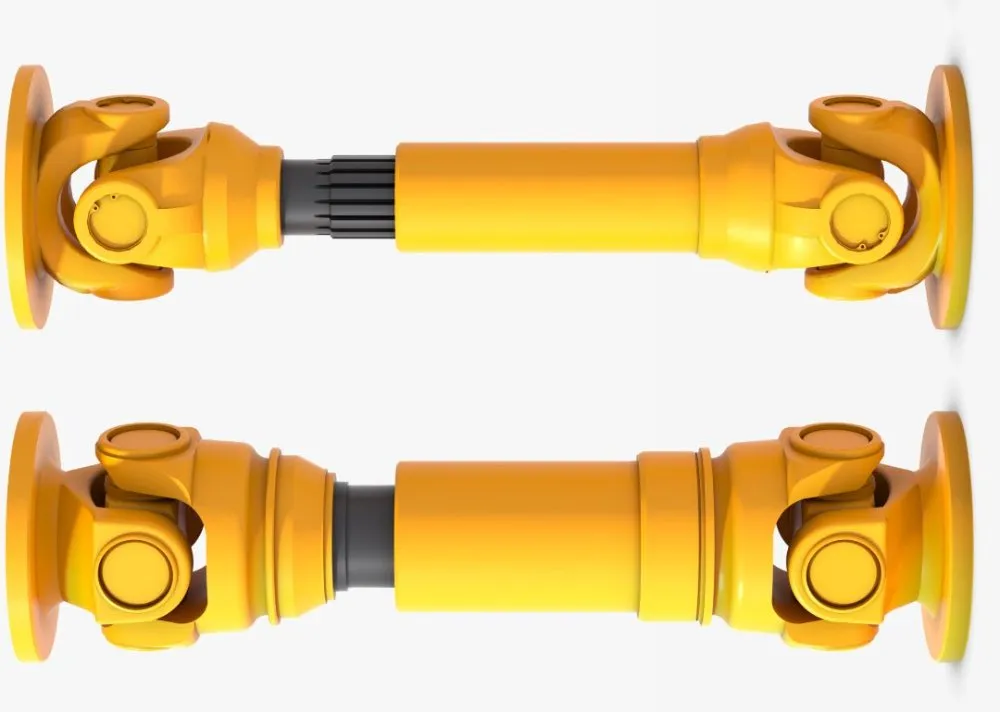
How do cardan shafts contribute to power transmission and motion in various applications?
Cardan shafts, also known as propeller shafts or drive shafts, play a significant role in power transmission and motion in various applications. They are widely used in automotive, industrial, and marine sectors to transfer torque and rotational power between non-aligned components. Cardan shafts offer several benefits that contribute to efficient power transmission and enable smooth motion in different applications. Here’s a detailed look at how cardan shafts contribute to power transmission and motion:
1. Torque Transmission:
– Cardan shafts are designed to transmit torque from a driving source, such as an engine or motor, to a driven component, such as wheels, propellers, or machinery. They can handle high torque loads and transfer power over long distances. By connecting the driving and driven components, cardan shafts ensure the efficient transmission of rotational power, enabling the motion of vehicles, machinery, or equipment.
2. Angular Misalignment Compensation:
– One of the key advantages of cardan shafts is their ability to accommodate angular misalignment between the driving and driven components. The universal joints present in cardan shafts allow for flexibility and articulation, compensating for variations in the relative positions of the components. This flexibility is crucial in applications where the driving and driven components may not be perfectly aligned, such as vehicles with suspension movement or machinery with adjustable parts. The cardan shaft’s universal joints enable the transmission of torque even when there are angular deviations, ensuring smooth power transfer.
3. Axial Misalignment Compensation:
– In addition to angular misalignment compensation, cardan shafts can also accommodate axial misalignment between the driving and driven components. Axial misalignment refers to the displacement along the axis of the shafts. The design of cardan shafts with telescopic sections or sliding splines allows for axial movement, enabling the shaft to adjust its length to compensate for variations in the distance between the components. This feature is particularly useful in applications where the distance between the driving and driven components can change, such as vehicles with adjustable wheelbases or machinery with variable attachment points.
4. Vibration Damping:
– Cardan shafts contribute to vibration damping in various applications. The flexibility provided by the universal joints helps absorb and dampen vibrations generated during operation. By allowing slight angular deflection and accommodating misalignment, cardan shafts help reduce the transmission of vibrations from the driving source to the driven component. This vibration damping feature improves the overall smoothness of operation, enhances ride comfort in vehicles, and reduces stress on machinery.
5. Balancing:
– To ensure smooth and efficient operation, cardan shafts are carefully balanced. Even minor imbalances in rotational components can result in vibration, noise, and reduced performance. Balancing the cardan shaft minimizes these issues by redistributing mass along the shaft, eliminating or minimizing vibrations caused by centrifugal forces. Proper balancing improves the overall stability, reduces wear on bearings and other components, and extends the lifespan of the shaft and associated equipment.
6. Safety Features:
– Cardan shafts often incorporate safety features to protect against mechanical failures. For example, some cardan shafts have guards or shielding to prevent contact with rotating components, reducing the risk of accidents or injuries. In applications where excessive forces or torques can occur, cardan shafts may include safety mechanisms such as shear pins or torque limiters. These features are designed to protect the shaft and other components from damage by shearing or disengaging in case of overload or excessive torque.
7. Versatility in Applications:
– Cardan shafts offer versatility in their applications. They are widely used in various industries, including automotive, agriculture, mining, marine, and industrial sectors. In automotive applications, cardan shafts transmit power from the engine to the wheels, enabling vehicle propulsion. In industrial machinery, they transfer power between motors and driven components such as conveyors, pumps, or generators. In marine applications, cardan shafts transmit power from the engine to propellers, enabling ship propulsion. The versatility of cardan shafts makes them suitable for a wide range of power transmission needs in different environments.
In summary, cardan shafts are essential components that contribute to efficient power transmission and motion in various applications. Their ability to accommodate angular and axial misalignment, dampen vibrations, balance rotational components, and incorporate safety features enables smooth and reliable operation in vehicles, machinery, and equipment. The versatility of cardan shafts makes them a valuable solution for transmitting torque and rotational power in diverse industries and environments.


editor by CX 2024-02-22